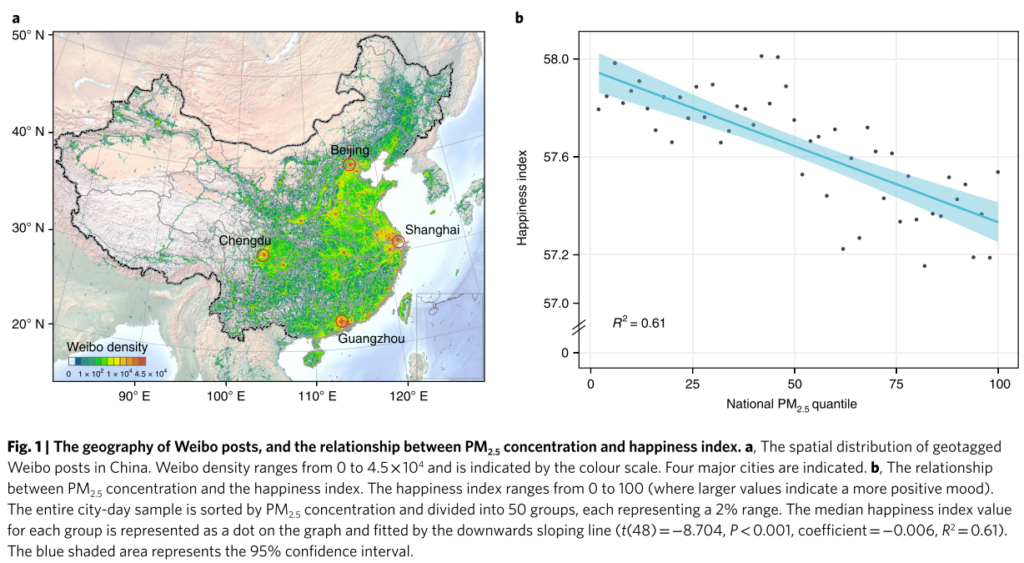공기가 나빠지면 휴대전화를 사용하는 패턴이 바뀌나요?
“초미세먼지가 증가하면 앱 사용시간은 전반적으로 감소하는데, 휴대폰으로 돈을 버는 캐시 앱 (cash app) 사용 시간은 증가하는 것으로 나타납니다. 공기가 나빠지면 실내에 있는 시간이 늘어나고 시간이 많다고 착각하면서 단위 시간의 금전적 가치를 낮게 계산하기 때문에, 캐시 앱을 평소보다 오래 사용하는 것 같습니다.”
*행동경제학개론
공기질과 소비자 행동
– #미세먼지 상태와 감정, 업무효율의 변화
– #공기질 과 소비 음식, 휴대전화 사용, 경제활동 변화
– 기상 정보, 자영업 마케팅의 활용 등
– #주재우 교수 (국민대학교 경영학과) #kbs1라디오 #라디오 #KBS라디오 #시사라디오 #KBS1Radio #성공예감이대호입니다 #성공예감 #이대호
***
Reference
Zheng, S., Wang, J., Sun, C., Zhang, X., & Kahn, M. E. (2019). Air pollution lowers Chinese urbanites’ expressed happiness on social media. Nature human behaviour, 3(3), 237-243.
High levels of air pollution in China may contribute to the urban population’s reported low level of happiness 1–3 . To test this claim, we have constructed a daily city-level expressed happiness metric based on the sentiment in the contents of 210 million geotagged tweets on the Chinese largest microblog platform Sina Weibo 4–6 , and studied its dynamics relative to daily local air quality index and PM 2.5 concentrations (fine particulate matter with diameters equal or smaller than 2.5 μm, the most prominent air pollutant in Chinese cities). Using daily data for 144 Chinese cities in 2014, we document that, on average, a one standard deviation increase in the PM 2.5 concentration (or Air Quality Index) is associated with a 0.043 (or 0.046) standard deviation decrease in the happiness index. People suffer more on weekends, holidays and days with extreme weather conditions. The expressed happiness of women and the residents of both the cleanest and dirtiest cities are more sensitive to air pollution. Social media data provides real-time feedback for China’s government about rising quality of life concerns.


